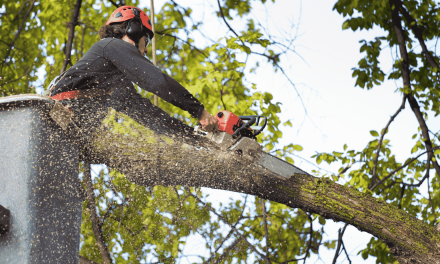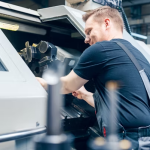The Everyday Cooking Habits That Are Shortening the Life of Your Appliances

Kitchen appliances are built to make our lives easier, but even the most well-made ones won’t last forever — especially if we unknowingly treat them in ways that speed up wear and tear. The truth is, many of us develop small daily habits in the kitchen that seem harmless but quietly chip away at the lifespan of our equipment.
If you’ve invested in quality pieces — such as durable Smeg kitchen appliances — you want to make sure they stay in top condition for as long as possible. That means being aware of the little things you might be doing without thinking, and swapping them for better habits that protect your investment.
From how you clean to how you cook, these are the everyday practices that could be causing more damage than you realise.
Overloading Your Dishwasher
It’s tempting to cram in “just a few more plates” rather than run another cycle, but overloading your dishwasher can lead to multiple problems. Not only can it scratch and chip your dishes, but it also puts stress on the racks, spray arms, and motor. Water and detergent can’t circulate properly, which means you may need to rewash items — wasting energy and water in the process.
Instead, load your dishwasher according to the manufacturer’s guidelines. Space items out so water can reach all surfaces, and run full but not overloaded loads.
Using Harsh Cleaning Products
While it’s good to keep your appliances clean, overly abrasive cleaners, scouring pads, and high-acidity solutions can damage finishes and seals. This is particularly true for stainless steel surfaces, which can scratch and lose their sheen over time.
Opt for gentle cleaning agents, microfibre cloths, and warm soapy water for everyday maintenance. For tougher stains, use a cleaner that’s specifically designed for the material in question.
Ignoring Filter and Vent Maintenance
From rangehoods to fridges, filters and vents are crucial for efficiency. A clogged filter in a rangehood reduces its ability to clear smoke and grease from your kitchen, while a blocked fridge vent forces the compressor to work harder, wearing it out sooner.
Check filters and vents regularly — monthly for rangehoods is a good rule of thumb — and clean or replace them as needed. This not only extends appliance life but also keeps them running efficiently.
Leaving Spills and Residue to “Deal With Later”
Spills in ovens, microwaves, or stovetops that are left for days can harden, making them more difficult to remove and potentially causing long-term staining or damage. Sugar-based spills, in particular, can burn onto surfaces and become nearly impossible to clean without scraping — which can scratch finishes.
Clean spills as soon as it’s safe to do so. A quick wipe-down after cooking takes less time than a deep clean later and helps prevent stubborn build-up.
Running Small Appliances Continuously
Blenders, food processors, and stand mixers are designed for short bursts of use. Running them continuously for long periods can overheat the motor, reducing its lifespan.
Instead, follow the recommended usage times in the manual. If you’re working on a big recipe, give the motor breaks in between batches to cool down.
Using the Wrong Cookware
On stovetops, using warped or undersized pans can cause uneven heat distribution, making your appliance work harder. In ovens, placing foil directly on the bottom can block airflow and even damage heating elements.
Always choose cookware that matches your appliance’s specifications. Flat-bottomed pans for induction and evenly sized trays for ovens help ensure efficient cooking and less strain on the appliance.
Neglecting Regular Servicing
Just like a car, some appliances benefit from routine check-ups. Fridges, for example, may need condenser coils cleaned annually to maintain performance. Coffee machines often require descaling to prevent mineral build-up that can clog internal parts.
A little preventive maintenance can prevent expensive breakdowns later and keep your appliances performing at their best.
Storing Items on Top of Appliances
It’s common to store things on top of microwaves or fridges for convenience, but this can block ventilation, leading to overheating. Even if you leave some space, heat from the appliance can warp or damage items stored there.
Keep the tops of heat-producing appliances clear, and make sure ventilation paths aren’t obstructed.
By recognising and changing these everyday habits, you can help ensure your appliances run smoothly for years to come. Treat them with care, keep them clean, and follow the manufacturer’s advice for use and maintenance.
A little attention to detail now could mean the difference between replacing your appliances in five years or enjoying them for well over a decade.






























